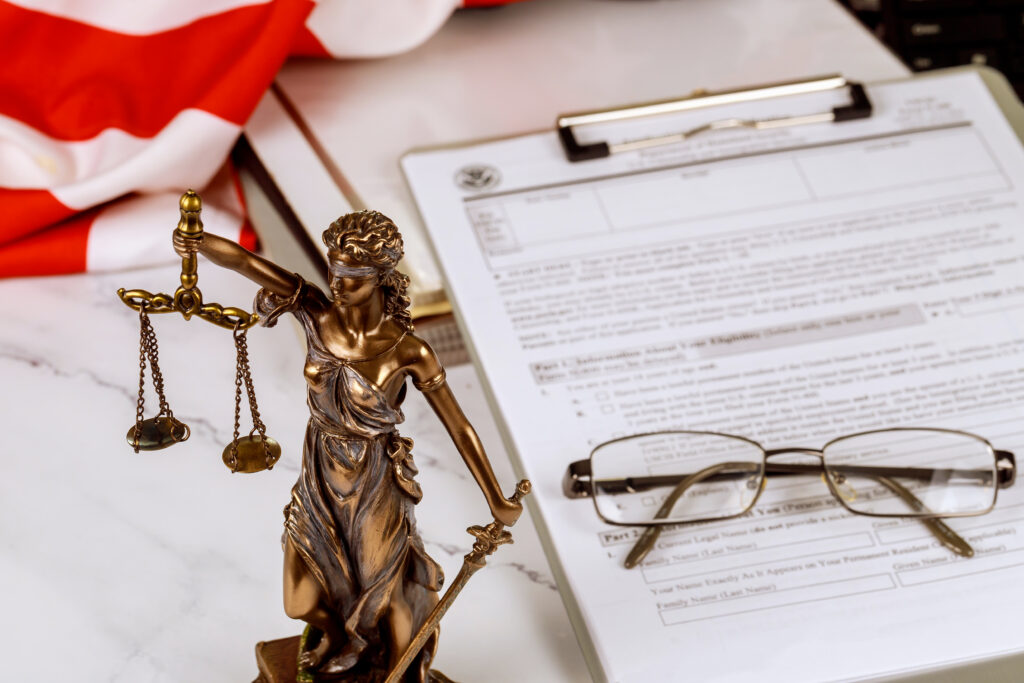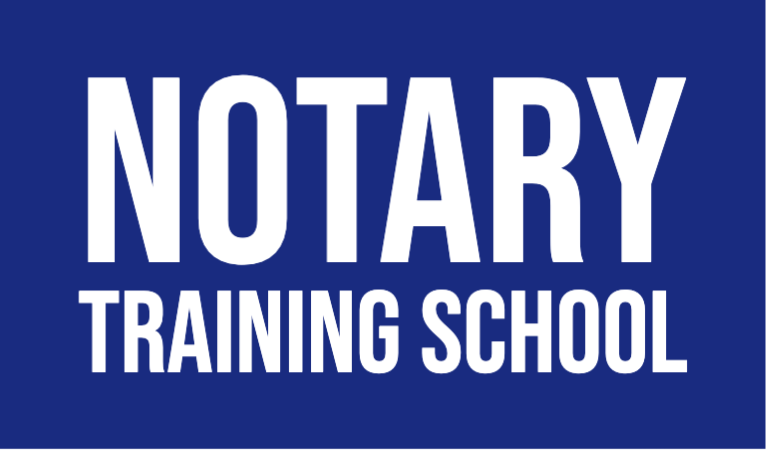Navigating the Path to Becoming a Legal Courier: A Guide for Notaries

A legal courier plays a critical role in the legal industry, ensuring that sensitive and essential documents are transported securely and promptly. For notaries looking to expand their professional horizons, becoming a legal courier offers a valuable opportunity to leverage their existing skills and increase their income. This guide will cover everything you need to know about navigating the path to becoming a legal courier, from understanding the role to building a successful career in this field.
Table of Contents
Understanding the Role of a Legal Courier

Definition and Responsibilities of a Legal Courier
A legal courier is responsible for the secure and timely delivery of legal documents, including court filings, subpoenas, and confidential client information. Unlike standard courier services, legal couriers must adhere to strict confidentiality protocols and possess a deep understanding of legal procedures. Their primary duties include picking up documents from law firms, delivering them to courts or other legal entities, and ensuring that all paperwork is handled with the utmost care and accuracy.
Typical Tasks and Duties
Legal couriers must be reliable and trustworthy, as they are often entrusted with highly sensitive information. Their role is crucial in maintaining the efficiency and integrity of the legal process, making them indispensable to law firms, courts, and other legal institutions. Typical tasks include document collection, secure transportation, timely delivery, and obtaining necessary signatures or acknowledgments upon receipt.
Differences Between a Legal Courier and Other Couriers
While the basic function of a courier remains the same across different fields—transporting items from one place to another—legal couriers deal specifically with legal documents and must be familiar with the unique requirements of the legal industry. This includes understanding the importance of deadlines, the need for confidentiality, and the specific handling instructions that legal documents often require. Legal couriers also often have to deal with more complex logistics, such as navigating courthouses or legal offices.
Importance of Confidentiality and Reliability
The legal industry demands high levels of confidentiality and reliability. Legal couriers must ensure that documents are not tampered with, lost, or accessed by unauthorized individuals. Reliability in timely deliveries is also critical, as delays can have significant legal implications. For notaries, who are already accustomed to handling sensitive documents with care, this role offers a natural extension of their professional capabilities.
Legal Requirements and Qualifications

General Legal Requirements
Becoming a legal courier involves meeting certain legal requirements and qualifications, which can vary by state. Generally, legal couriers must have a clean criminal record, a valid driver’s license, and reliable transportation. Some states may require specific certifications or background checks to ensure the individual’s suitability for handling sensitive legal documents.
State-Specific Regulations and Certifications
Understanding state-specific regulations is crucial. Some states may have additional requirements or offer certifications that enhance a courier’s credibility and marketability. Notaries can benefit from researching these regulations and obtaining any necessary certifications to bolster their qualifications. This might include undergoing background checks, completing specific training programs, or obtaining a business license if you plan to operate independently.
Necessary Skills and Qualifications
In addition to legal prerequisites, aspiring legal couriers must possess a range of skills and qualifications. Strong organizational skills, attention to detail, and excellent time management are essential. The ability to maintain confidentiality and exhibit professional integrity is paramount. For notaries, many of these skills are already part of their professional toolkit, making the transition to a legal courier a smoother process.
How Being a Notary Complements the Role
Notaries bring a unique set of skills to the role of a legal courier. Their experience with legal documents, attention to detail, and understanding of confidentiality protocols provide a strong foundation for success. Additionally, notaries are often well-versed in legal terminology and procedures, which can be beneficial when handling and delivering legal documents.
Steps to Becoming a Legal Courier

Step-by-Step Process
Embarking on a career as a legal courier involves several key steps:
Research and Preparation
Begin by researching the legal requirements and industry standards in your state. Understand the specific needs of law firms and courts in your area. This will help you tailor your services to meet the demands of your potential clients.
Education and Training
While formal education is not always required, completing relevant training programs can be beneficial. Look for courses that cover legal procedures, document handling, and confidentiality protocols. Training programs can also provide valuable insights into the logistics and best practices of the legal courier industry.
Licenses and Certifications
Obtain any necessary licenses and certifications. This may include passing background checks and securing a business license if you plan to operate independently. Certifications can enhance your credibility and demonstrate your commitment to professionalism.
Building Experience
Gain experience by working in related fields or offering courier services to local businesses. This helps build your resume and establish a network of contacts. Volunteering for local legal organizations or shadowing experienced couriers can also provide valuable insights and experience.
Marketing Yourself
Create a professional image and market your services to potential clients. Highlight your notary credentials and any additional certifications to stand out in the legal courier market. Utilize online platforms, social media, and professional networks to reach a broader audience.
Networking and Building Relationships
Establish relationships with law firms, courts, and other legal entities. Networking is key to gaining trust and securing regular clients. Attend industry events, join professional associations, and engage with online communities to build a strong network.
Continuous Learning
Stay updated on legal procedures and industry trends. Continuous learning ensures you remain competitive and effective in your role. Subscribe to industry publications, attend workshops, and participate in professional development opportunities.
Essential Skills and Tools for Legal Couriers

Key Skills Needed for Success
Success as a legal courier requires a combination of skills and the right tools:
Attention to Detail
Ensuring all documents are accurately handled and delivered. Mistakes can have significant legal consequences, so precision is crucial.
Time Management
Efficiently planning routes and meeting deadlines. Legal documents often have strict deadlines, making punctuality essential.
Confidentiality
Maintaining the privacy of sensitive information. Legal couriers must ensure that documents are not accessed by unauthorized individuals.
Communication Skills
Clearly communicating with clients and legal entities. Effective communication helps prevent misunderstandings and ensures smooth operations.
Problem-Solving
Quickly addressing any issues that arise during deliveries. Legal couriers must be able to adapt and find solutions to unexpected problems.
Tools and Equipment Required
Essential tools include reliable transportation, a smartphone or GPS for navigation, and secure storage for documents. Notaries can use their knowledge of document handling to excel in these areas, making them well-suited for the role. Additional tools might include document tracking software, secure delivery bags, and identification badges for access to secure locations.
Tips for Improving Efficiency and Accuracy
Legal couriers can improve their efficiency and accuracy by:
- Planning routes in advance to avoid delays
- Using technology to track deliveries and manage schedules
- Establishing a system for organizing and prioritizing tasks
- Regularly maintaining their vehicles to prevent breakdowns
- Staying informed about traffic conditions and road closures
Building a Client Base and Marketing Yourself

Strategies for Finding Clients
Building a client base as a legal courier involves strategic marketing and networking:
Professional Relationships
Leverage existing relationships with law firms and legal professionals. Personal recommendations can be invaluable. Reach out to former colleagues, clients, and industry contacts to inform them of your new services.
Online Presence
Create a professional website and use social media to market your services. Highlight your notary experience and any special certifications. Utilize search engine optimization (SEO) techniques to ensure your website appears in relevant search results.
Networking Events
Attend industry events and join professional associations. Networking helps you meet potential clients and stay informed about industry trends. Participate in local business groups, legal associations, and courier networks to expand your reach.
Service Differentiation
Offer additional services, such as notary public services, to differentiate yourself from competitors. Highlight your unique selling points, such as specialized training, certifications, or personalized service.
Importance of Professional Relationships
Establishing and maintaining professional relationships is crucial for success. Satisfied clients are likely to recommend your services to others, helping you build a strong reputation. Regularly check in with clients, ask for feedback, and address any concerns promptly.
Marketing Tips Specific to Legal Couriers
Effective marketing strategies for legal couriers include:
- Creating informative content, such as blog posts or videos, to educate potential clients about your services
- Utilizing email marketing to stay in touch with clients and provide updates on your services
- Offering referral incentives to encourage satisfied clients to recommend you to others
- Collaborating with other legal professionals, such as paralegals or attorneys, to expand your network
Using Your Notary Credentials
Using your notary credentials to market yourself as a legal courier can attract clients who value professionalism and reliability. Emphasize your experience in handling sensitive documents and maintaining confidentiality. Highlight any additional training or certifications that enhance your qualifications.
Challenges and How to Overcome Them

Common Challenges Faced by Legal Couriers
Legal couriers face several challenges, including:
Tight Deadlines
Managing time effectively to meet strict deadlines. Delays can have significant legal consequences, so punctuality is crucial.
Confidentiality Risks
Ensuring the privacy and security of sensitive documents. Legal couriers must take steps to prevent unauthorized access and maintain confidentiality.
Navigational Issues
Finding the most efficient routes to avoid delays. Legal couriers often need to navigate busy city streets or unfamiliar locations.
Solutions and Tips for Overcoming Challenges
To overcome these challenges, legal couriers should develop strong organizational and time management skills. Using technology, such as route planning apps and secure document storage solutions, can also help mitigate risks. Additional strategies include:
- Establishing a routine: Create a daily schedule that includes regular check-ins with clients and planned routes.
- Using technology: Utilize GPS and navigation apps to find the best routes and avoid traffic delays.
- Maintaining confidentiality: Use secure delivery methods
, such as locked delivery bags, and ensure documents are only accessible to authorized individuals.
- Staying organized: Keep detailed records of deliveries, including timestamps and recipient signatures, to maintain accountability.
Balancing the Roles of Notary and Legal Courier
Balancing the roles of a notary and legal courier requires careful planning and prioritization. Notaries should establish a clear schedule that allows them to fulfill both roles effectively. This might include setting specific hours for notary services and dedicating other times to courier tasks. Effective time management and organizational skills are essential for maintaining a balance between these responsibilities.
Importance of Continuous Learning and Adaptation
The legal industry is constantly evolving, and legal couriers must stay informed about changes in laws, procedures, and technology. Continuous learning and adaptation are key to maintaining success in this field. Legal couriers should seek out professional development opportunities, attend industry conferences, and subscribe to relevant publications to stay current.
The Future of Legal Courier Services

Trends and Changes in the Legal Courier Industry
The legal courier industry is evolving, with technology playing a significant role. Trends include the increasing use of electronic documents and digital signatures, which may reduce the volume of physical documents needing courier services. However, the demand for secure and reliable document transportation remains strong, particularly for sensitive legal materials.
Impact of Technology on the Role of Legal Couriers
Technology is transforming the role of legal couriers in several ways:
- Digital Signatures: The use of digital signatures is becoming more common, reducing the need for physical document delivery. However, legal couriers still play a crucial role in delivering original documents and obtaining wet signatures when required.
- Document Tracking: Advanced tracking systems allow legal couriers to monitor the status of deliveries in real-time, ensuring accountability and transparency.
- Automation: Automation of certain processes, such as route planning and scheduling, can improve efficiency and reduce the likelihood of errors.
Opportunities for Growth and Advancement
Despite technological advancements, there are still ample opportunities for growth and advancement in the legal courier industry. Legal couriers can specialize in high-demand areas, such as court filings or confidential client deliveries, to differentiate themselves from competitors. Additionally, legal couriers can expand their services to include document management, legal research, or paralegal support.
How Notaries Can Stay Ahead
For notaries, staying ahead of industry trends and embracing new technologies can provide a competitive edge. Notaries should continuously seek out opportunities for professional development, such as attending workshops, obtaining additional certifications, and participating in industry associations. By staying informed and adapting to changes, notaries can maintain their relevance and competitiveness in the legal courier industry.
Conclusion
Becoming a legal courier offers notaries a valuable opportunity to expand their professional services and increase their income. By understanding the role, meeting legal requirements, and developing essential skills, notaries can successfully navigate the path to becoming legal couriers. Building a strong client base, overcoming challenges, and staying informed about industry trends will ensure long-term success in this rewarding career. For those ready to take the next step, further training and professional development are essential.
Legal couriers play a critical role in the legal industry, ensuring the secure and timely delivery of sensitive documents. With the right skills, qualifications, and dedication, notaries can successfully transition into this important role. By leveraging their existing expertise and embracing new opportunities, notaries can build a successful career as legal couriers and contribute to the efficiency and integrity of the legal process.






Responses